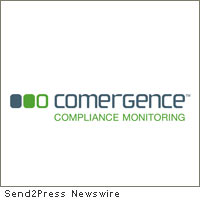 ORANGE, Calif. (CitizenWire) — Greg Schroeder, president of Comergence Compliance Monitoring, a leading provider of third-party originator (TPO) monitoring and due diligence solutions, says he supports HUD’s move to eliminate FHA approvals for loan correspondents, thereby distancing itself from the risks inherent in the current management of this origination channel.
ORANGE, Calif. (CitizenWire) — Greg Schroeder, president of Comergence Compliance Monitoring, a leading provider of third-party originator (TPO) monitoring and due diligence solutions, says he supports HUD’s move to eliminate FHA approvals for loan correspondents, thereby distancing itself from the risks inherent in the current management of this origination channel.
On p. 20725 of the memo, “Federal Housing Administration: Continuation of FHA Reform; Strengthening Risk Management Through Responsible FHA-Approved Lenders” (http://edocket.access.gpo.gov/2010/pdf/2010-8837.pdf), HUD outlines 10 recommendations for verifying TPO compliance with FHA requirements. The overarching theme within these recommendations is the need for lenders to establish procedures for TPO interaction and activity surveillance. According to Schroeder, these recommendations provide an excellent starting point for lenders to begin developing a sophisticated TPO due diligence strategy, but what is absent from this list is guidance on how to execute these recommendations.
“For these recommendations to truly be effective, the underlying protocols and procedures must be developed with an eye towards standardization across the industry,” said Schroeder. “Comergence Compliance Monitoring has worked to establish processes that would constitute best practices for TPO due diligence.”
In its summary of the changes, HUD noted that some within the industry objected to the change on the grounds that mortgagees would create an undue burden on mortgage bankers (mortgagees), as they would be forced to incur the cost of hiring and training additional staff to process and close loans that would otherwise be managed by their correspondent partners.
In addition, many suggested that the FHA toughen its approval requirements as an alternate means to mitigate risk, rather than eliminate correspondent approvals altogether. According to Schroeder, this strategy fails to place the risk of broker originations with the appropriate party.
“The announcement by HUD is simply a codification of rules that most mortgage bankers were already following implicitly, if not explicitly,” said Schroeder. “This move is a clear flag in the sand by HUD regarding its willingness to interact with the correspondent. It’s the mortgage banker who reaps the benefits of originating through correspondents. Therefore, it should be the mortgage banker, not HUD or FHA, that bears the burden of the risk associated with third-party originations.”
Current HUD regulations already identify several situations, such as suspension or conviction of certain offenses that would prohibit lenders from participation in FHA programs. However, Schroeder warns, there are plenty of other activities in which a broker could be engaged in that would significantly increase the risk a mortgage banker would face in dealing with that broker. If nothing else, he said, HUD’s announcement should serve as a clear indication to mortgage bankers that they must proactively take on the management of TPO risk.
“Comergence Compliance Monitoring has always understood mortgage bankers’ needs for standardization and relationship management with TPO’s,” he continued. “With the technological capabilities that 21st Century innovation affords us, a fully hosted, rules-based automated due diligence solution is now a reality.”
About Comergence:
Comergence Compliance Monitoring, headquartered in Orange, California, is the mortgage industry’s first end-to-end, outsource solution for TPO management and compliance monitoring providing a comprehensive alternative to a lender’s in-house management and monitoring resources. Using a variety of best-practice processes, proprietary monitoring technology and hands-on service protocols, Comergence provides lenders unparalleled simplicity, security and quality.
For more information about Comergence Compliance Monitoring, visit www.comergencecompliance.com .
News Source: Comergence Compliance Monitoring :: This story was issued by Send2Press® and is Copyright © 2010 Neotrope® News Network – all rights reserved. Published on CitizenWire™ under license.
